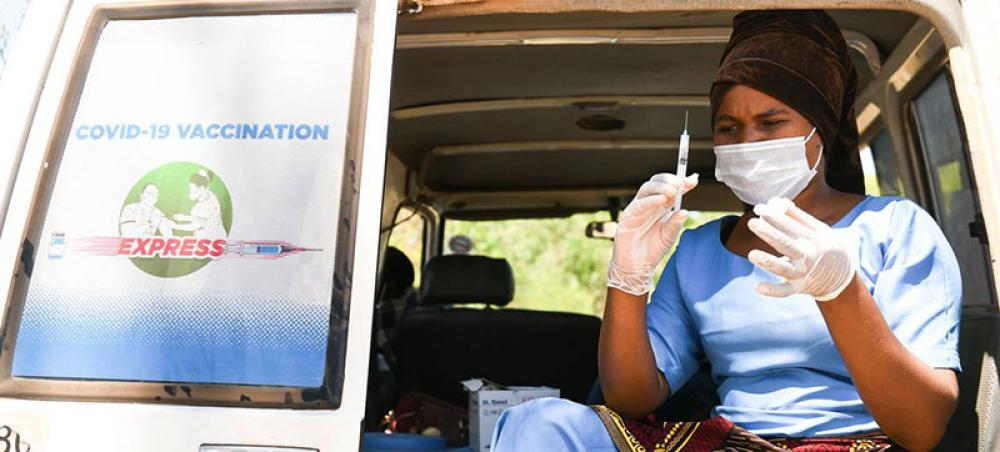Just Earth News | @justearthnews | 02 Mar 2022, 05:18 am Print
 Image: UNICEF/Thoko Chikondi
Image: UNICEF/Thoko Chikondi Germany COVID19
New York: Germany has become the first country to answer a call for wealthy nations to contribute their “fair share” towards ending the COVID-19 pandemic, the World Health Organization (WHO) reported on Tuesday.
The country has committed to provide $1.22 billion to support the ACT-Accelerator, the global partnership for equitable access to tests, treatments, vaccines, and personal protective equipment (PPE).
The mechanism requires $16.8 billion to meet urgent needs.
‘Fair share’ calculation
Last month, the co-chairs of the ACT-Accelerator Facilitation Council - President Cyril Ramaphosa of South Africa and Prime Minister Jonas Gahr Støre of Norway – appealed to 55 countries to contribute their “fair share” towards bridging the gap.
This would be calculated based on the size of their national economy and what they would gain from a faster recovery of the global economy and trade.
German Finance Minister Christian Lindner, announced the pledge at the G7 Finance Ministers’ Meeting, which was held virtually.
An additional $253 million will also be allocated for in-country COVID-19 response.
Follow the leader
Tedros Adhanom Ghebreyesus, the WHO Director General, thanked Germany for its leadership.
“We call on other countries to follow Germany's lead in contributing their fair share, as we seek to end the acute phase of the pandemic this year. Only through acting together can we achieve this goal,” he said.
WHO’s Special Envoys for the ACT-Accelerator, Dr Ayoade Alakija and Carl Bildt, have also welcomed the early support from Germany.
The ACT-Accelerator was established just weeks after the pandemic was declared in March 2020. The global vaccine solidarity initiative COVAX is one of its four pillars.
WHO said the German pledge reinforces the strong support the country has provided to the ACT-Accelerator effort, since its inception.
- New hybrid Mpox strain surfaces in UK and India — WHO sounds global alert
- Deadly weight: Obesity now responsible for 1 in 10 infection deaths worldwide
- Coffee and tea: This everyday drink may help protect your brain from dementia
- Happy Chocolate Day! The sweet secret behind chocolate’s hidden benefits
- Cambridge study finds menopause affects memory, mood, and sleep





-1763561110.jpg)
